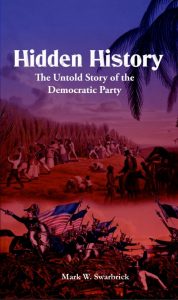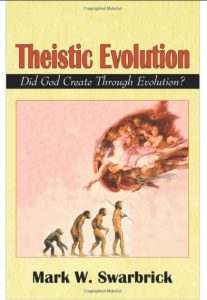By Mark W Swarbrick
Religion & the Roosevelts
I’ve been watching the PBS series The Roosevelts. It is very educational and I highly recommend it. You can watch it on your computer at PBS.com or tune in to your PBS channel on TV. The series informs about President Theodore Roosevelt, President Franklin D. Roosevelt and his wife, Eleanor Roosevelt.
It is informative and inspirational in that it tells of the positive influence these people had on America in spite of their hardships. It is a Ken Burns production and is so well done that by the end of each show you feel an affinity for these people who suffered and yet triumphed so remarkably. One cannot help but feel sadness when the death of each is chronicled and sense that a power for great good departs with them.
But the series is also instructive about present day America by what it does not say. Even though the series covers the tragedies of death of children and loved ones and covers the joys of courtship and marriage and the intimate details of their lives, one thing is glaringly missing from the narrative. Nothing, absolutely nothing, is said about their religious convictions.
I felt a sadness as I watched because I began to believe that these wonderful people apparently were devoid of any religious inclination at all. How utterly strange, I thought, that people who have nothing to do with God would be so influential for the good of mankind.
I began to wonder if such was actually the case, or was the PBS series omitting the truth? Thus I began some research. What I found was both heartening and alarming. Heartening in the sense that I discovered the Roosevelts were devout Christians, but alarming in that the deliberate omission of these facts by PBS points to the increasing desire of modern America to remove God from all aspects of American life.
Just a few years ago the Democratic National Convention voted to remove references to “God” and “Jerusalem” from all their literature. The liberals are not content with freedom of religion, they want freedom from religion. PBS allows the religions of global warming, humanism and evolution, but will not allow anything remotely Christian on their channels.
The removal of any reference to the Christianity of the Roosevelts on the PBS series is a distortion of history. Their faith was the very foundation of their convictions and was intrinsically woven into the fabric of their lives. Not only does the omission of these facts erode the authenticity of the PBS series, but it is one more indication showing how far the populace of America has fallen away from the principles which made this nation great.
In a day when we desperately need leaders like the Roosevelts, we passively tolerate the removal of that faith which enables men and women to rise above their fallen natures and attain the heights of inspiration and leadership that are needed to carry our nation victoriously through adversity and hardship.
Now for the real facts:
President Theodore Roosevelt
He may have been the most Christian and most religious president of America. He was a protestant, a member of the Dutch Reformed Church. He, along with his father, was deeply involved in supporting missionary work and he often wrote for Christian publications, one article of which was entitled, “Why Men Should Go To Church.” He was extended invitations to speak at Pacific Theological Seminary. At Berkeley he gave lectures on the Christian’s role in modern society, giving five lectures, speaking extemporaneously on this subject for 90 minutes per lecture.
President Franklin D. Roosevelt
The Obama administration is endeavoring to remove any God references in FDR’s speeches recorded on plaques at the Franklin D. Roosevelt Memorial in Washington, DC. The fact remains that FDR was a Christian and often referred publically to God’s providence and guidance. In his famous “Day of Infamy” speech after Pearl Harbor, the line “We will win through to absolute victory, so help us God,” brought tremendous applause. His D-Day address was formulated as a prayer to Almighty God.
FDR was a protestant Christian, an Episcopalian. Here are some of his words:
“We cannot read the history of our rise and development as a nation, without reckoning with the place the Bible has occupied in shaping the advances of the Republic.”
“I hope that you have re-read the Constitution of the United States in these past few weeks. Like the Bible, it ought to be read again and again.”
“Those forces hate democracy and Christianity as two phases of the same civilization. They oppose democracy because it is Christian. They oppose Christianity because it preaches democracy.
“Those forces hate Democracy and Christianity as two phases of the same civilization.”
“Pray that we may be given the strength to live for others.”
FDR expressed his conviction that soldiers should have the opportunity to read the words of Christ before they go into Battle. On January 25, 1941, FDR wrote a personal prologue to a special edition of the New Testament, which was distributed to millions of U.S. soldiers. “As Commander-in-Chief,’ Roosevelt wrote, “I take pleasure in commending the reading of the Bible to all who serve in the armed forces of the United States.”[1]
FDR’s social policies were a reaction to large corporate monopolies and the suffering of the poor. His policies, which sometimes seemed to regard profit as evil and contributed to the lengthening of the Great Depression, were nevertheless motivated by his dedicated interest in helping the American people, and these labors were born from his Christian conviction to “do good unto all men.” He saw his New Deal as applied Christianity.
In his second inaugural address he pledged to do his utmost by “seeking divine guidance.” When he spoke to the nation on Christmas Eve, he quoted the Sermon on the Mount.
First Lady Eleanor Roosevelt
Wife of FDR, she was perhaps the most devoted Christian of all. She had a passionate commitment to those she regarded as disadvantaged. Her tireless work for the sick, the poor, for soldiers, and for civil rights is legend. She made it clear that all she did was motivated by her Christian faith. Eleanor, who was regular in prayer and church attendance, was motivated to good works by the Christian conviction that “much is expected of those to whom much is given.” She said her motivation was “following love, as we all must, and that is to follow God.”
She held that democracy depends upon moral foundations and that religion is the main source of morality, saying, “We do not begin to approach a solution of our problems, until we acknowledge the fact that they are spiritual…democracy requires a spiritual, moral awakening.”
More quotes from Eleanor:
“The citizens of a Democracy must model themselves on the best and most unselfish life we have known in history. They may not all believe in Christ’s divinity, though many will; but His life is important simply because it becomes a shining beacon of what success means. We may belong to any religion or to none, but we must acknowledge that the life of Christ was based on principles which are necessary to the development of a Democratic state.”
“It is quite obvious that we do not practice a Christ-like way of living in our relationship to submerged people, and here again we see that a kind of religion which gives us a sense of obligation about living with a deeper interest in the welfare of our neighbors is an essential to the success of Democracy.”
“If Americans would only develop the fundamental beliefs and desires which make us considerate of the weak and truly anxious to see a Christ-like spirit on earth we will have educated ourselves for Democracy.”
“It is always disagreeable to take stands. It is always easier to compromise; always easier to let things go…It is extraordinarily difficult to care about anything enough to cause disagreement of unpleasant feeling, but I have come to the conclusion this must done…”
She carried in her purse an inspirational message by Henry Van Dyke, enjoining one to “think seldom of your enemies, often of your friends, and every day of Christ.”
She knelt every night to say her prayers.” When the Rev. Levy asked her, in the 1950s, whether she still read the Bible, she told him, “I try to read it daily, at bedtime, even if it’s only a page or two. The trouble is that I’m usually so tired and I’m ashamed to say it, but I sometimes fall asleep in the middle of my prayers!”
In the article, God and Mrs. Roosevelt we read,
“Roosevelt was famously committed to helping the hungry, the homeless, the jobless, the dispossessed, and the victims of war, disease, and injustice. How did that relate to her faith? Jean Elshtain put her finger on the right answer in 1986: ‘Eleanor Roosevelt’s deeply devout and intensely felt religious convictions, her determination to bear witness and to serve as Christ did, and her unabashed openness about all of this, is more of a scandal to us than to her contemporaries.’ To ignore that dimension of Roosevelt’s persona is to separate her public positions from what she herself maintained were their deepest springs.[2]
Conclusion
The PBS silence on the faith of the Roosevelts is indicative of the poor spiritual climate in America today. The Roosevelts were Christians who lived their faith. It is that faith without which they could not have achieved the great things they did. Today, more than ever, America needs to come back to those roots. The PBS removal of all references to that which made the Roosevelts great is a disservice to their memory, to history and to the American people in a time when we so very much need what the Roosevelts had: The Lord Jesus Christ.
Other books by Pastor Mark Swarbrick, click the image below…
[1] http://www.conservapedia.com/Franklin_D._Roosevelt#Reflections_on_Christianity
[2] http://www.firstthings.com/article/2010/05/god-and-mrs-roosevelt






